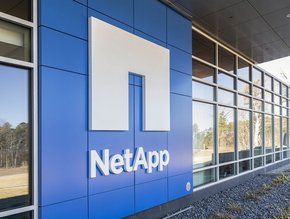Gen AI Used to Disrupt, but Many Underestimate Requirements

Most businesses today are bullish on using generative AI (Gen AI) to disrupt, but are underestimating the requirements, according to a global study conducted by MIT Technology Review Insights (MITTR).
Research has found that while most businesses are seeking to disrupt their industries using Gen AI, only a small proportion believe they have the right level of technology and other attributes such as funding, culture and skills to support its rapid adoption.
Those with the most experience in rolling out generative AI have even less confidence in their IT, suggesting many businesses underestimate the requirements for its effective deployment. This implies their plans to be disruptors – rather than the disrupted – may well founder over problems that many respondents appear not to appreciate fully.
The report for the study was produced in partnership with Telstra International, a global arm of leading telecommunications and technology company Telstra. MITTR polled 300 business leaders across Asia-Pacific, the Americas and Europe on how their organisations are implementing – or planning to implement – Gen AI technologies, along with the barriers to effective deployment.
Gen AI an ‘opportunity rather than a threat’
The respondents mostly manage information technology, data, and data engineering-related functions, and represent a broad spectrum of industries including financial services, banking, and insurance, consumer packaged goods and retail, manufacturing and automotive, technology and telecom, logistics, energy, oil, and gas, and media and communications.
“There are clearly great expectations around how game-changing Gen AI could be, with an overwhelming majority of leaders suggesting they see it more as a competitive opportunity than a threat,” said David Williams, Managing Director of EMEA at Telstra International.
“However, this research highlights an important shift as executives work to address the underlying challenges with deployment before the hype around generative AI hype begins to translate into more impactful and meaningful ways.”
The study included the following key findings:
1. Executives expect Gen AI to disrupt industries across economies
Overall, six out of 10 respondents agree that generative AI technology will substantially disrupt their industry over the next five years. Despite inevitable variations, respondents who foresee disruption exceed those who do not across every industry.
2. Majority do not see AI disruption as a risk and instead hope to be disruptors
Rather than being concerned, 78% of respondents see generative AI as a competitive opportunity. Just 8% regard it as a threat. Most hope to become disruptors: 65% say their businesses are actively considering new and innovative ways to use generative AI to unlock hidden opportunities from data.
3. Despite expectations of change, few companies went beyond experimentation with, or limited adoption of, Gen AI in 2023
Although most (76%) companies surveyed had worked with generative AI in some way in 2023, few (9%) had adopted the technology widely. The rest who experimented had deployed it in only one or a few limited areas. Moreover, the most common use case was automating non-essential tasks—a low-to-modest-gain, but minimal-risk usage of the technology.
4. Companies have ambitious plans to increase adoption in 2024
Respondents expect the number of functions or general purposes where they will seek to deploy generative AI to more than double in 2024. They expect to frequently apply the technology in customer experience, strategic analysis, and product innovation areas by the end of 2024. Meanwhile, respondents plan to increase the use of generative AI in specific fields relevant to their industries. These areas include coding for IT firms, supply change management in logistics, and compliance in financial services.
5. Companies need to address IT deficiencies or risk falling short of their Gen AI ambitions
Fewer than 30% of respondents rank IT attributes at their companies as conducive to the rapid adoption of generative AI. Moreover, these results may be overly optimistic. Those with the most experience of rolling out generative AI have even less confidence in their IT. Many in this group (65%) say their available hardware is, at best, modestly conducive to rapid adoption.
6. Other factors can also undermine the successful use of Gen AI
Respondents, both in general and AI early adopters, also report non-IT impediments to the extensive use of generative AI.
- Risk: 77% of respondents cite their regulatory, compliance, and data privacy environment as a leading barrier to rapid AI adoption.
- Budgets: 56% list IT investment budgets as a leading barrier.
- Competitive environment: Early adopters of generative AI are more than twice as likely to see the competitive environment as an enabler of rapid adoption than as a barrier.
- Culture: Early adopters of generative AI are more likely to regard openness to innovation as an enabler of rapid adoption.
- Skills: The skills needed for significant AI projects are in short supply; but among the respondents, early adopters are more acutely aware of the shortage of available talent.
“A wide pool across all industries continues to experiment with these powerful tools which can deliver practical benefits to certain use cases,” Williams adds. “To unlock the transformative capabilities that will separate the leaders from the followers across any given sector, executives will need to start building end-to-end capabilities that allow them to handle large datasets, accurately contextualise the data for business value and ensure the responsible and ethical application of AI.”






